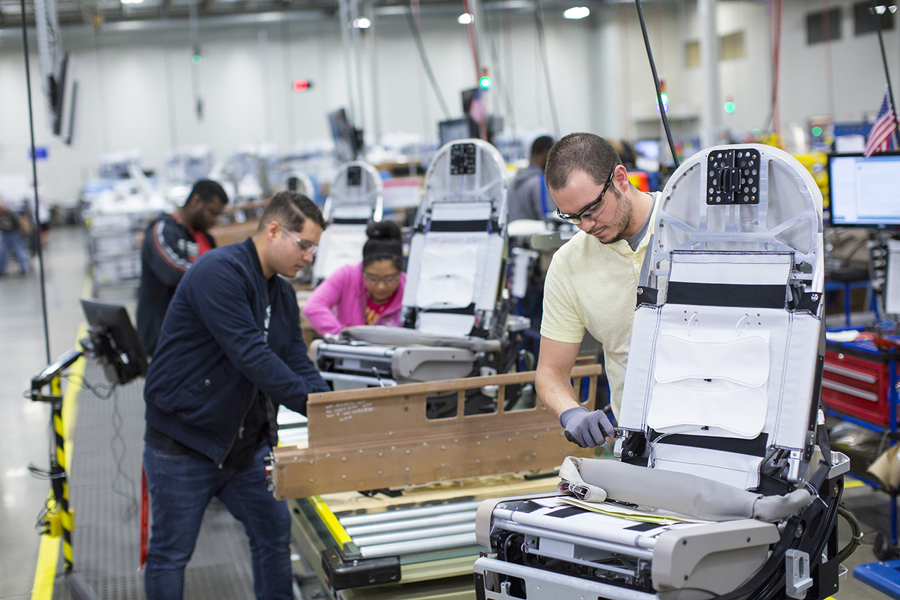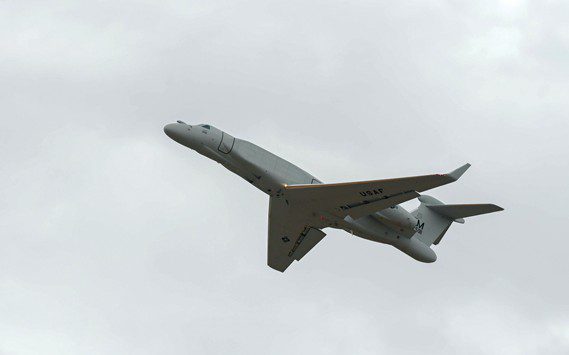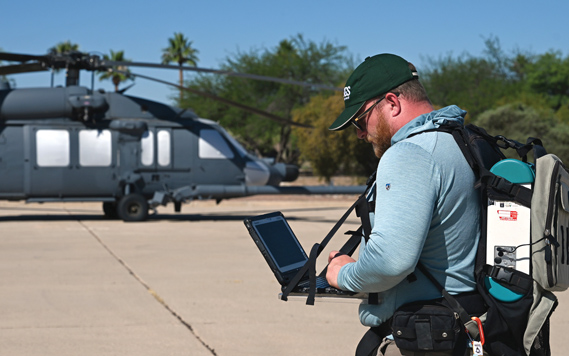Raytheon Technologies reported third quarter earnings of $264 million on Oct. 27.
The Waltham, Mass.,-based company said it had net income of 17 cents per share. Earnings, adjusted for one-time gains and costs, came to 58 cents per share.
The results surpassed Wall Street expectations. The average estimate of six analysts surveyed by Zacks Investment Research was for earnings of 48 cents per share.
The aerospace and defense company posted revenue of $14.75 billion in the period, missing Street forecasts. Three analysts surveyed by Zacks expected $15.13 billion.
The news was tempered when CEO Greg Hayes said during the earnings call, that the company would be cutting 15,000 staff and 4,000 contractor positions as the commercial aerospace sector suffered because of the coronavirus pandemic.
Most of the layoffs will be at the company’s Pratt & Whitney and Collins Aerospace divisions.
“We don’t expect commercial air traffic to return to 2019 levels, until at least 2023. And that’s of course depending upon the timing of a widely distributed vaccine. In the near term, we expect a gradual recovery of commercial air traffic particularly given the recent spike in global cases [of coronavirus],” Hayes said.

“As you know, we set aggressive targets in the first quarter to reduce costs by about $2 billion and to take actions to conserve about $4 billion in cash, making difficult but necessary actions to reduce headcount,” Hayes said.
The ongoing personnel actions reflect a 20 percent cut at the two divisions. It will include both temporary furloughs and a hiring freeze. Raytheon had already announced plans to cut 1,000 jobs on its corporate side as a result of the merger with United Technologies in April.
According to company reports, the Pratt & Whitney division posted a $615 million loss for the quarter. In the same quarter for 2019, the division posted a $520 million profit. One bright spot, military sales rose 11 percent driven, in part, by production on the F-35 Lightning II.
The Collins Aerospace division posted an operating profit of $526 million for the quarter, a 58 percent over the same period in 2019.
Losses were offset, somewhat, by the company’s intelligence and space, and missiles, and defense segments.
Raytheon will reduce its infrastructure footprint, current at 31-million-square-feet, by more than 20 percent. Initial plans, following the merger, called for a 10 percent reduction.












